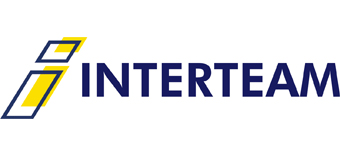Head Office
Interteam Speditionsgesellschaft mbH
Kattjahren 8
22359 Hamburg
Tel +49 40 7310 80 0
Fax +49 40 7310 80 38
service.hh@interteam.hamburg
Map: click here
Branch Office Berlin
Interteam Speditionsgesellschaft mbH
Am Borsigturm 31
13507 Berlin
Tel +49 30 396 004 0
Fax +49 30 396 004 40
service.b@interteam.berlin
Map: click here

EU Emissions Trading System (ETS) | Combating Climate Change | Reducing Greenhouse Gas Emissions
/in Uncategorized /by Ingo BernseeInformation:
The ETS aims to significantly reduce emissions by 2030 and bring them to net zero by 2050.
All shortsea routes involving Interteam’s trades and vessels with a gross registered number of more than 5000 will be subject to the EU ETS from 01.01.2024.
Under the EU ETS, any shipping company with ships calling at or leaving ports in the EU or EEA will be required to comply. This means that shipping companies must buy emission allowances for each ton of CO2 to cover their CO2 emissions each year.
The amount of CO2 emissions will be limited and supply and demand will determine the price of emission allowances. As a result, allowances [European Emission Allowances (EUAs)] will increase in price over time.
For voyages between EU and non-EU countries (e.g. UK), emission allowances must be purchased for 50% of the distance between the two ports.
On short-sea routes between the EU and the UK, the ETS therefore only applies to 50% of the route for the time being. However, the UK is developing its own variant of the ETS, which is expected to be introduced in the coming years.
Roll-out schedule (EU):
In the first step, shipping companies will go through a phase-in period. In 2024, allowances for 40% of total emissions must be purchased. This will increase to 70% in 2025 and finally reach 100% in 2026.
Projected costs:
The costs of the ETS, joint compliance and climate change mitigation, and GHG emission reductions will have to be absorbed by the market. The surcharge introduced is not a means to make a profit! The cost per tonne of carbon dioxide can be tracked*. A monthly surcharge will be introduced from 01.01.2024. Final cost calculations are currently being made. Further information will follow.
Further information:
*Cost per tonne of carbon dioxide: https://ember-climate.org/data/data-tools/carbon-price-viewer/
Extension of the EU Emissions Trading Scheme to maritime transport: https://climate.ec.europa.eu/eu-action/transport/reducing-emissions-shipping-sector/faq-maritime-transport-eu-emissions-trading-system-ets_en#extension-of-the-eu-emissions-trading-system-to-maritime-transport
Brexit UK: Gradual introduction of new border controls (Update)
/in Uncategorized /by Ingo BernseeThe UK government has published the final “Border Target Operating Model”, which addresses the phased introduction of full customs controls on so-called SPS (animal products and plant products) goods.
The timing of the phased introduction has been adjusted (see below).
Animal products and plant products are to be classified into three different risk classes in the future.
The requirements for importation are derived from the risk classification. Accordingly, when importing SPS goods from the EU or another third country with a low risk, a prior notification or a health certificate will no longer be required. Health certificates are to be gradually digitized.
31.10.2023 –> 31.01.2024:
– For animal products and plant products with a medium risk, the submission of veterinary certificates and phytosanitary certificates will become mandatory
31.01.2024 –> 30.04.2024:
– For animal products and plant products with a medium risk, controls (physical controls and verification of documents) at border control posts such as Border Control Post or BCP will be introduced.
31.10.2024:
– Mandatory submission of entry summary declarations (Safety and Security declarations) for imports from the EU analogous to the existing procedure for import from third countries.
Gradual increase of the truck toll in Germany 2023-2024 (2026)
/in Uncategorized /by Ingo BernseeDue to the German government’s toll amendment law, new toll rates and a CO2 toll will be introduced. The toll exemption for natural gas-powered vehicles will be abolished and vehicles over 3.5 tonnes will also be subject to tolls.
Offers and prices for transport logistics services will be adjusted to the toll increase on 01.12.2023.
Step-by-step increase in detail:
01.01.2023:
Toll increase for HGVs due to new road cost report
The toll rate in cents per kilometre for an articulated vehicle with more than 4 axles, emission class 6 and a gross vehicle weight of more than 18 tonnes is 19 cents.
01.12.2023:
A CO2 surcharge will be levied for the HGV toll: a surcharge of €200.00 will be due per tonne of CO2. In return, a new tariff feature will be introduced in the form of the CO2 emission class. This means that for vehicles with a technically permissible gross weight of 7.5 tonnes or more, a partial toll rate for CO2 emissions will be added to the existing toll.
The toll rate in cents per kilometre for an articulated lorry with more than 4 axles, emission class 6 and a gross vehicle weight of more than 18 tonnes will then be 34.8 cents from 1 December 2023.
01.01.2024:
The toll exemption for vehicles powered by natural gas will cease on 31.12.2023. From 01.01.2024, vehicles powered by natural gas will be divided into pollutant classes in the same way as vehicles powered by diesel and will be subject to tolls.
01.07.2024:
From 01.07.2024, all vehicles with a technically permissible total mass of more than 3.5 tonnes will be subject to tolls.
01.01.2026:
Emission-free vehicles remain exempt from the toll until 31.12.2025.